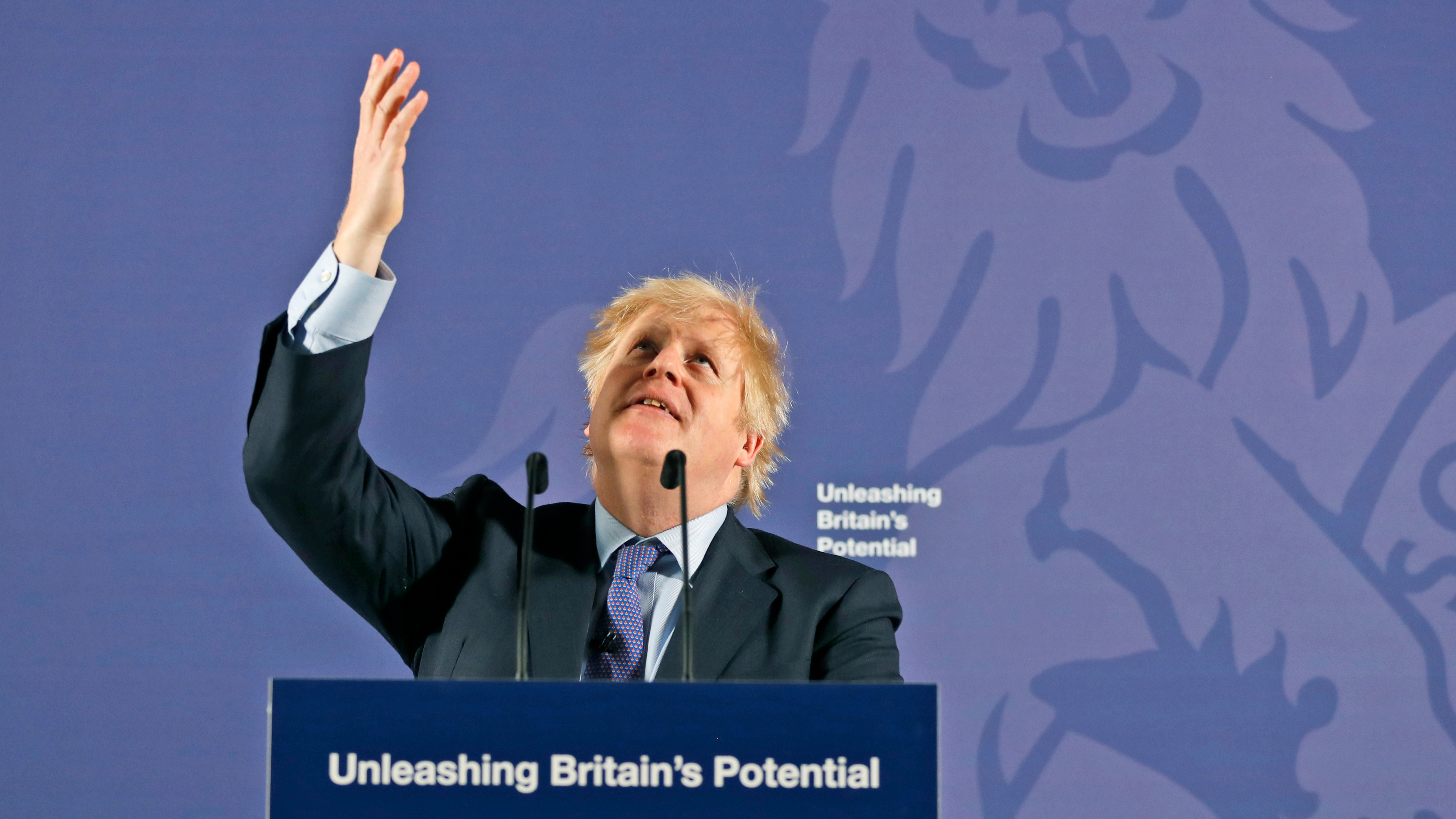
After succeeding former Prime Minister Theresa May, Boris Johnson quickly gained the support of the public to 'Get Brexit done.' /AP
After succeeding former Prime Minister Theresa May, Boris Johnson quickly gained the support of the public to 'Get Brexit done.' /AP
Editor's note: Stephen Ndegwa is a Nairobi-based communication expert, lecturer-scholar at the United States International University-Africa, author and international affairs columnist. The article reflects the author's opinions, and not necessarily the views of CGTN.
It's now official. The UK and the EU have finally called it quits. Following months of protracted transition negotiations after leaving the union on January 31, the two erstwhile partners struck a trade deal on December 24 that gives the UK a soft landing after it exits its single largest market on December 31. Basically, the deal comprises new rules for how the UK and EU will live, work and trade together, starting January 1, 2021.
It was also a befitting Christmas gift for businesses in the UK who dreaded going into the New Year without an agreement on terms of trade. Still, it cannot be completely over since there are some grey areas like financial services that need finer detailing in the months ahead. But the trade deal is obviously a strong foundation on which to tighten any loose ends. Moreover, the two will naturally continue cooperating in areas of mutual interest like climate change, energy, security and transport.
The spirit of the final bowing out was captured by EU chief negotiator Michel Barnier who told reporters that "the UK has chosen to leave the European Union and the single market, to renounce the benefits and advantages held by member states."
According to forecasts by the UK Office for Budget Responsibility, the departure will lead to a loss of output of around four percent in the long term. It will also lead to higher consumer prices, loss of jobs and declining exports. But now that the dye is cast, experts are analyzing the pros and cons of UK's bold move as the country reverts to its previous status.
Interestingly, the siege on UK's borders after the discovery of a new strain of COVID-19 last week reflected the kind of scenario that symbolically now faces the UK post-Brexit. Thousands of trucks and their drivers were stranded on the border with France as they waited to undergo coronavirus tests before proceeding to their destinations. There were ugly scenes between the drivers and border police as the former became frustrated with the bureaucracy at the border.
On the flipside, the exit now gives Britain the opportunity to rediscover itself after years of being subsumed by the union. Observers feel that the UK would like to retrace its steps back to the days of the British Empire, when at its height in 1922 was a superpower covering around a quarter of the world and ruling over 458 million people.
Already, the UK is inking trade deals with previous key allies around the world. The objective is not only to attract as much business as possible in compensation of what it will lose in the EU common market, but also use the trade deals to foster more areas of cooperation, mostly diplomatically and militarily. The end game, however, remains a matter of conjecture.

Fishing boats take part in Brexit flotilla, organized by Fishing For Leave, in Newcastle upon Tyne, UK, March 15, 2019. /Reuters
Fishing boats take part in Brexit flotilla, organized by Fishing For Leave, in Newcastle upon Tyne, UK, March 15, 2019. /Reuters
Secondly, the EU may not be all it has been cracked up to be in terms of overall benefits to members, a key factor that the UK might have taken seriously when deciding to opt out. It is estimated that the UK was paying an average of 15 billion pounds ($20.3 billion) or 0.06 percent of its gross domestic product at the least to be part of the EU. Even if more than half of that money was refunded in rebates, the balance would come handy in addressing poverty and security challenges at home.
An article titled "Disadvantages of EU Membership" published in July of 2019 by Tejvan Pettinger cited several of these fundamental shortcomings including inefficient policies that have an overreliance on agriculture, economic problems with the Euro single currency, free movement of labor which has caused overcrowding in some UK cities, and a bureaucracy that has stifled internal democracy.
But even as the EU flexes its muscles, it has also lost an invaluable partner that added a lot of economic and cultural value to the body. The EU is weaker without UK's input in key economic areas, including the country's long history as an empire. It will also take a bite out of the UK cake by engaging in bilateral trade.
Some former colonies and erstwhile partners of the UK might direct more energy to dealing with the now independent entity away from the intimidating if not nebulous EU. As the U.S. gets deeper into trouble due to the effects of COVID-19 compounded by four years of Trumpism, Britain might also feel a compelling moral duty of filling the vacuum being vacated by its key Western ally.
The world will now be watching closely to see whether Brexit will inspire similar action by other members who might feel like small fishes in a big pond within the membership. Such a trend could be a pointer to both the weakening and loss of relevance of the EU in a fast-changing world.
(If you want to contribute and have specific expertise, please contact us at opinions@cgtn.com)

